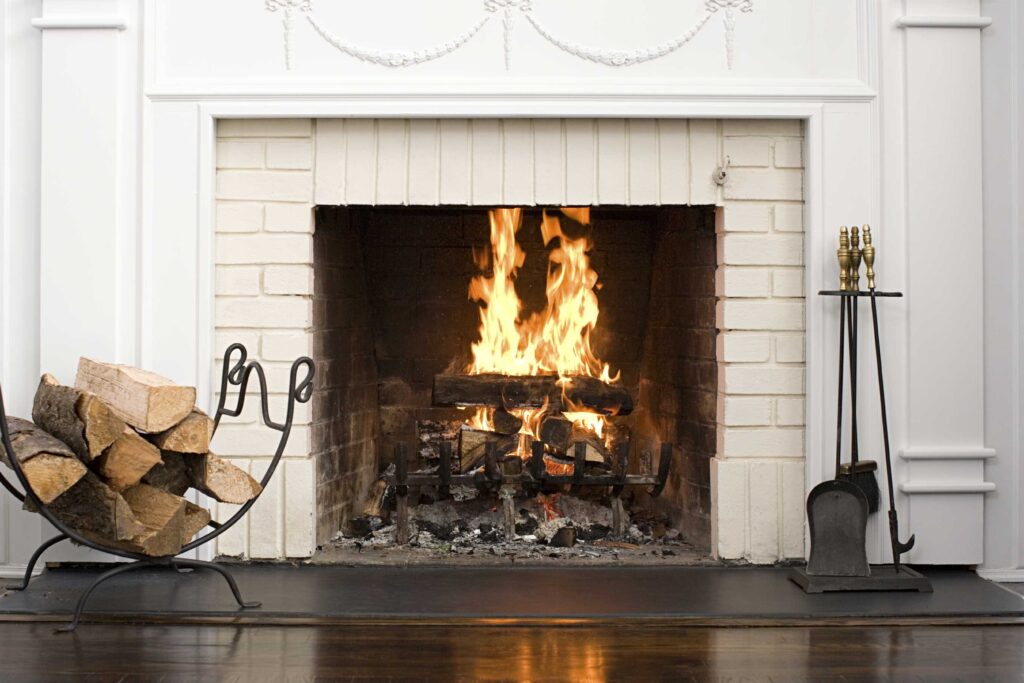Burn Better: Cleaner fuels and regular chimney maintenance key to reducing pollution from open fires and stoves used for domestic burning

Public reminded of best ways to minimise the environmental impact of burning at home this winter ahead of new government policy on cleaner fuels in the spring
A new survey has found four in ten (40%) of Brits think they will be more likely to use their open fire or stove this winter compared to previous years, as more expect to be spending more time at home.
However, the data also reveals nearly half (49%) of users are unaware that without following some simple steps, burning solid fuels could have a negative impact on their health.
As the days shorten, over a third (34%) of people like an open fire or log burner to improve the aesthetics and cosy ambiance of their home. Yet two thirds (65%) admit to burning materials detrimental to air quality and health such as wrapping paper, household plastic and furniture.
The research, of over 2,000 people, found that nearly one in five (19%) believe wood burners and coal fires are the most environmentally friendly ways of heating their home. In fact, domestic burning is a major contributor of harmful fine particulate matter (e.g. smoke, dirt, dust, grit) emissions in the UK.
To help reduce emissions and improve people’s health, the ‘Burn Better’ campaign is appealing to those with a wood burning stove or open fire in their homes to act now and follow some simple steps to improve air quality.
Better practices such as properly drying fresh cut wood or servicing the stove and chimney regularly make a real difference to the air we breathe in the home. Using better fuels also results in more heat, as well as less smoke and less soot – which is a more pleasant experience for the householder, and reduces maintenance costs.
The ‘Burn Better’ initiative is supported by the Department for Environment, Food and Rural Affairs (Defra), the Solid Fuel Association and HETAS, the solid fuel and safety standard organisation.
Bruce Allen, CEO at HETAS, said:
“It’s worrying to see many people are burning materials that are harmful to air quality in the UK and are unaware of the negative impact burning the wrong type of fuels can have on their health. With people due to spend more time in their homes this winter, I would urge everyone with an open fire or stove to consider improving burning habits by reassessing the types of fuels used.
“Choosing better versions of standard fuels, such as sustainably sourced and seasoned wood, and looking out for the ‘ready to burn logo’ are small changes but can have a huge impact in helping to keep you and your household safe.”
John Watkiss, Chairman of the Solid Fuel Association and Director of the Coal Merchants’ Federation, said:
“Open fires and stoves remain a popular feature in homes across the country and as the coming weeks will see more people spending time indoors, it’s the right time to raise awareness about better burning practices. We need everyone to act now to consider burning better solid fuels and making sure their appliance is serviced regularly to ensure it uses less fuel, produces more heat and reduces harmful emissions.”
Research found that a quarter (25%) of those surveyed with open fires or stoves reported burning traditional house coal, and 19% burn waste wood such as pallets. Between May 2021 and 2023, sales of house coal and wet wood in England will be phased out giving the public and suppliers time to move to cleaner alternatives such as dry wood and manufactured solid fuels to help reduce emissions and improve people’s heath.
The ‘Burn Better’ campaign provides advice to improve the way you burn, such as:
Choose the cleanest fuels: Before purchasing always check what fuels are suitable for your appliance. When buying wood look out for the ‘ready to burn logo’ and make sure you store it in a dry place. When choosing a manufactured solid fuel, such as briquettes or fire logs, choose a brand that indicates its ‘suitable for use in smoke-controlled areas’ these give off less smoke.
Make sure your wood is ready to burn: Dry wood produces less smoke and more heat. If you’re producing your own logs for burning, store them in a dry area, allowing them to air dry for at least 12 months. Before burning, use a moisture meter to check the water content of the logs are less than 20%.
Service your stove: Getting your stove serviced annually by a maintenance engineer will ensure your appliance performs better, using less fuel to produce more heat. If you’re thinking of upgrading your appliance consider getting one with a Defra exemption or that’s Eco-design Ready. These give off less smoke and are more heat efficient.
Keep your chimney safe: In the year April 2019 to March 2020 3,130 houses in England had chimney fires as a result of a build-up of flammable tar. Most chimney fires are preventable and are largely due to infrequent sweeping, so always book in an annual sweep*




